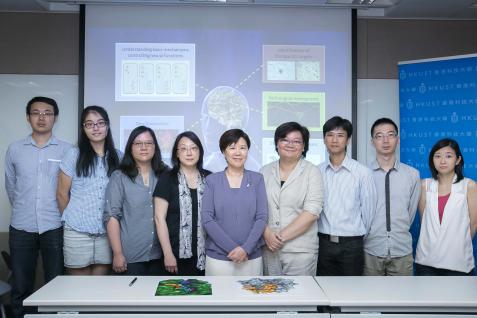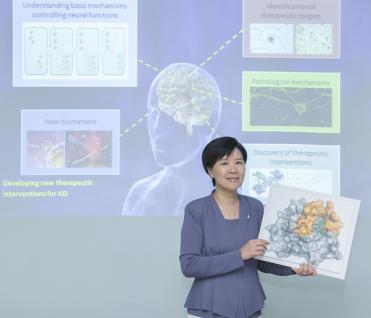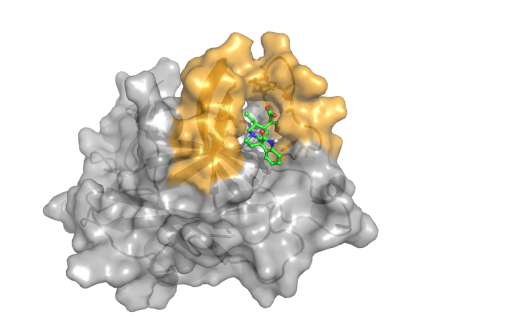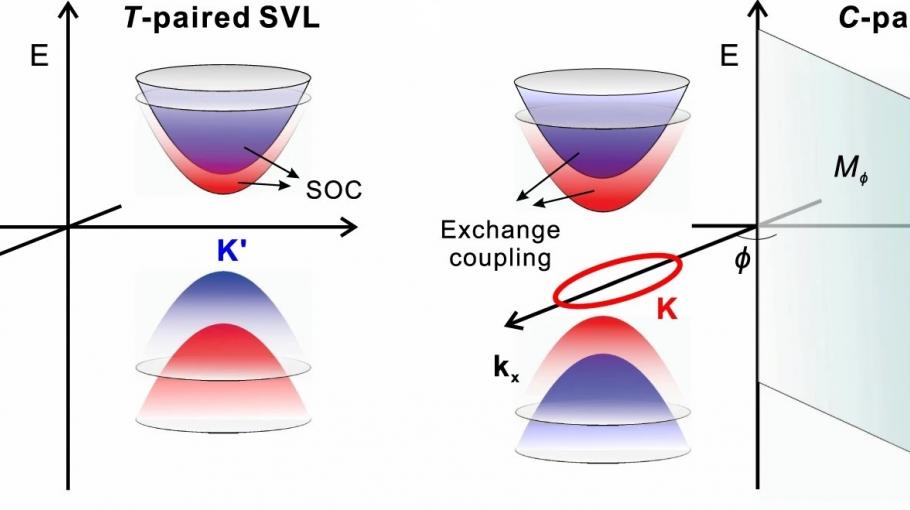A research team led by Prof Nancy Ip, Dean of Science, Director of the State Key Laboratory of Molecular Neuroscience and The Morningside Professor of Life Science at the Hong Kong University of Science and Technology (HKUST), has successfully discovered a novel molecular target for Alzheimer’s disease (AD), unveiling a potentially new therapy for the disease. The team recently discovered that aberrant activation of the protein EphA4 is involved in the pathology of AD and identified a naturally occurring compound from a traditional Chinese medicine herb that can block the activity of EphA4. These groundbreaking discoveries have been published in Proceedings of the National Academy of Sciences of the United States of America (PNAS), a prestigious scientific journal.
Alzheimer’s disease is a progressive, debilitating and degenerative brain disease. Patients suffer from memory loss, impaired reasoning and judgment, and reduced locomotion abilities. AD mainly affects individuals over the age of 65, and is one of the possible leading causes of mortality in the elderly. The increasing number of AD patients will create an enormous social and economic burden on families and societies. It is also an emerging public health problem that poses a huge public resource burden. There are no effective early diagnostic tools or treatments for AD as the pathophysiology of the disease is still unclear. However, research has confirmed that patients are afflicted with AD long before they have symptoms of memory loss or cognitive decline. Thus, not only are therapeutic interventions urgently required, but they also need to be implemented in the early stages of the disease in order to be effective. And beta-amyloid (Aß) is believed to be the main causative agent responsible for the cognitive impairment observed in patients.
Prof Ip and the research team discovered that Aß can cause the aberrant activation of the protein EphA4 which triggers a signaling pathway that results in cognitive impairment. They demonstrated that EphA4 is the key player in the pathogenesis of AD. The team then explored the potential of manipulating this pathway as a possible therapeutic intervention. Molecular docking analysis, undertaken in collaboration with Prof Xuhui Huang in the Department of Chemistry, resulted in the identification of a naturally occurring compound from a traditional Chinese medicine database. This small molecule can rescue the synaptic impairment that underlies cognitive impairment as well as reduces AD pathology in animal models, thus demonstrating a potentially new clinical intervention to treat the disease.
This project is generously supported by the Innovation and Technology Commission, Hong Kong Research Grants Council and the SH Ho Foundation.
Prof Nancy Ip joined HKUST in 1993 and became Chair Professor in 2005. In February 2011, she was appointed Dean of Science. Prof Ip’s outstanding scientific accomplishments have won her numerous awards and honors including the Croucher Foundation Senior Research Fellowship in 1998, the National Natural Science Award in 2003 and in 2011, the L’OREAL-UNESCO ‘For Women in Science’ Award in 2004, the Scientific and Technological Progress Prize of Ho Leung Ho Lee Foundation in 2008, and more recently, the honor of Knight of l’Ordre National du Mérite. She is an Academician of the Chinese Academy of Sciences and a Fellow of the Academy of Sciences for the Developing World.
For media enquiries, please feel free to contact:
Ella Au Yeung
Tel: 2358 6306
Email: ellaauyeung@ust.hk






